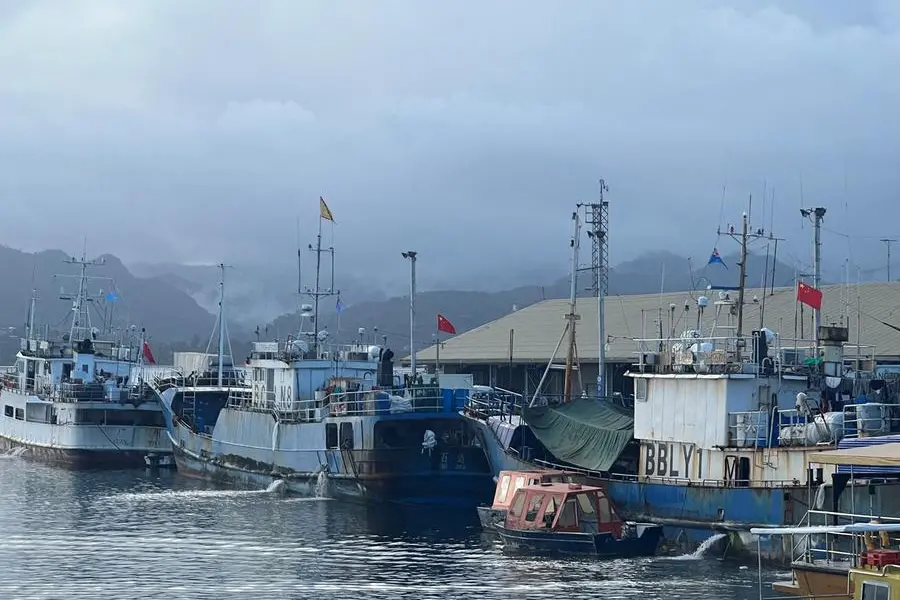PHOTO
A grouping of Pacific islands, including Fiji, Papua New Guinea and the Solomon Islands, are opposing a draft deal on changes to fisheries subsidies at the World Trade Organization talks in Abu Dhabi, arguing that it does not go far enough.
Fiji Deputy Prime Minister Manoa Seru Kamikamica said the current text did not address the Pacific Islands' concerns about the environment and argued a cap on current subsidies would be a better way forward.
He said the Pacific Islands were struggling to be heard as the United States, China, Japan and others sought consensus on the text which is intended to help protect overfished stocks.
"We've had to fight hard to actually get our voices heard here," Kamikamica told Reuters on Thursday on the sidelines of the talks.
"We would like the large subsidizing countries to put a cap on the current level of subsidies."
Kamikamica, who is also minister of trade, said that Fiji, Papua New Guinea, Samoa, the Solomon Islands, Tonga and Vanuatu were all opposed to the proposed text that would allow large fishing nations to continue providing subsidies if certain criteria are met.
The Pacific Islands are concerned that depleted global fishing stocks pose a threat to coastal communities. A cap on subsidies would allow a Pacific fishing industry to compete with those subsidized by the likes of the United States, China, Japan and the European Union, Kamikamica said.
The sparsely populated yet strategically important Pacific has emerged as an area of competition between the U.S. and its allies on one side, and China, whose influence in the region has expanded, on the other.
But Kamikamica said larger nations who claimed to have a vested interest in the region, could do better at listening to what the Pacific is trying to achieve.
"The subsidies have emaciated the fisheries industries in these countries. If we at least start controlling the subsidies, the Pacific Islands and other small island states may have an opportunity to develop their own industry," he said.
The Pacific proposal to cap existing subsidies was a practical solution, he said, adding that India had proposed totally removing subsidies.
"We're not unreasonable. We are seeking solutions," he said.
(Reporting by Alexander Cornwell; editing by Christina Fincher)





















